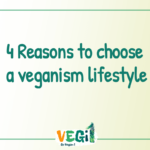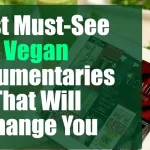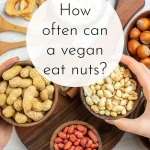Why People are quitting veganism
Understanding the Reasons Behind the Ex-Vegan Phenomenon
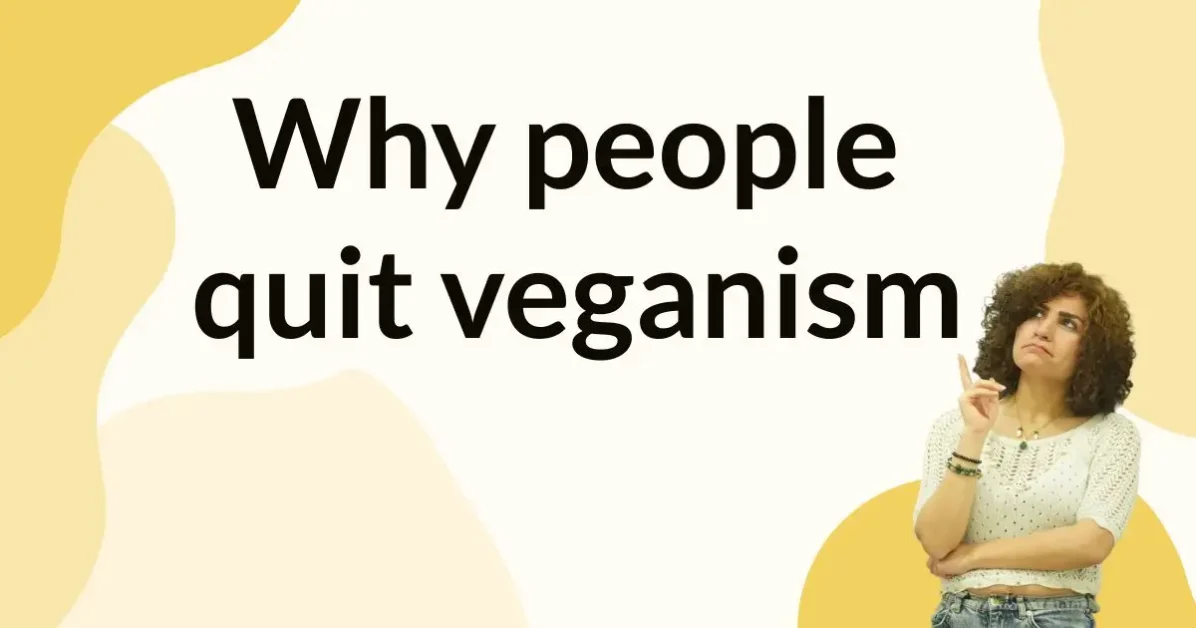
Why People are quitting veganism
Ever wondered why some folks decide to ditch the vegan lifestyle and go back to eating animal products?
The journey of staying vegan can be a bumpy road, and there are numerous reasons why people might choose to leave it behind.
In this blog post, I’ll share my personal experience and insights into why some popular online influencers have ditched their vegan diets, and the common behaviors and patterns I’ve observed among these ex-vegans.
I’ll explore the reasons why some people are quitting veganism, examine the psychological and social factors that can lead to the ex-vegan phenomenon and discuss ways to maintain a balanced, sustainable vegan lifestyle.
Complete nutrition guide for vegan athletes
In this article you will read:
My Vegan Journey and Meeting Ex-Vegan Influencers
My journey into veganism started over a 8years ago, driven by a mix of health and ethical reasons. Along the way, I met many influencers who have since abandoned their vegan diets.
So, let’s kick things off with the basics. What exactly is veganism? At its core, veganism is a lifestyle choice that seeks to exclude all forms of animal exploitation and cruelty, whether it’s in the food we eat, the clothes we wear, or the products we use.
My interest in a plant-based lifestyle was sparked by reading “The China Study.” The book highlighted how cultures with the longest lifespans predominantly consumed plant-based diets.
Also, the Dominion documentary changed my whole perspective on life and I saw with my own eyes what cruelty is happening in this animal breeding and slaughtering industry.
For many, it’s about the health benefits – lower risk of heart disease, improved digestion, and a lighter feeling overall. Others are drawn to veganism for ethical reasons, aiming to reduce animal suffering and lessen their environmental impact.
But let’s be real – staying vegan isn’t always a walk in the park. There are several hurdles that can trip up even the most dedicated vegans. From nutritional deficiencies to social pressures and cost concerns, these challenges can make it tough to stick with a plant-based lifestyle.
Seeing the harsh realities of factory farming and animal suffering shook me to my core. I knew I couldn’t support that industry any longer. I went vegan overnight. The transition wasn’t easy, but I was determined.
As I immersed myself in the vegan community, I discovered so much about nutrition, animal rights, and environmental issues. I learned to cook delicious vegan meals, and found amazing plant-based products.
Reasons Why Some People Quit Vegetarianism
-
Convenience
Let’s face it – being vegan requires effort. From reading labels to finding vegan-friendly restaurants, it can be time-consuming and sometimes frustrating. Busy lifestyles and lack of access to vegan options can make it hard for some people to stick with it. Convenience often wins, and they revert to their old eating habits.
-
Emotional Fatigue
Being constantly aware of animal suffering and environmental destruction can take an emotional toll. Compassion fatigue is real, and some vegans find it hard to cope with the weight of their ethical concerns. Over time, this emotional burden can lead to burnout and a desire to step away from the vegan lifestyle.
-
The Lone Vegan: Facing Isolation and Social Pressures
One of the biggest challenges for many vegans is dealing with social pressures. Family gatherings, outings with friends, and even work events can be tough. Not everyone understands or supports a vegan lifestyle, and this can lead to feelings of isolation.
Many people stumble upon veganism independently. They might not have vegan friends or family members, making them the lone vegan in their social circles.
I’ve had my fair share of awkward family dinners and skeptical friends. But I’ve learned to navigate these situations with grace and patience.
But Some people find it difficult and eventually give in.
This isolation can wear them down over time. Constantly being questioned and bullied by non-vegan peers can erode their determination.
-
Fighting Misinformation
One of the biggest challenges for lone vegans is the pervasive misinformation about veganism. Unlike other movements, veganism faces misinformation on multiple fronts: health, ethics, and the environment.
Some people are swayed by myths and misconceptions, such as the idea that vegan diets are inherently unhealthy or that plant-based proteins are inferior. When faced with conflicting information, it’s easy to become confused and decide to abandon veganism altogether.
Arguing against so many misconceptions can be exhausting. It creates doubt and uncertainty, especially when non-vegan friends and family bombard them with anti-vegan content.
Social media plays a significant role in spreading misinformation. Lone vegans who don’t have a steady stream of positive vegan content might find themselves immersed in anti-vegan narratives. This constant exposure can weaken their resolve.
To counteract this, it’s crucial for lone vegans to seek out supportive communities. Online forums, local vegan groups, and social media communities can provide the much-needed support and validation.
Engaging with like-minded individuals can strengthen their conviction and provide a sense of belonging. Sharing experiences and resources can help combat misinformation and reinforce their commitment.
-
Education and Resources
Providing resources that debunk common myths and highlight the benefits of veganism can empower lone vegans to defend their lifestyle confidently.
Encouraging continuous learning and staying updated with the latest research can help them stay informed and resilient against anti-vegan propaganda. But you have to learn how to search and research and cite scientific sources.
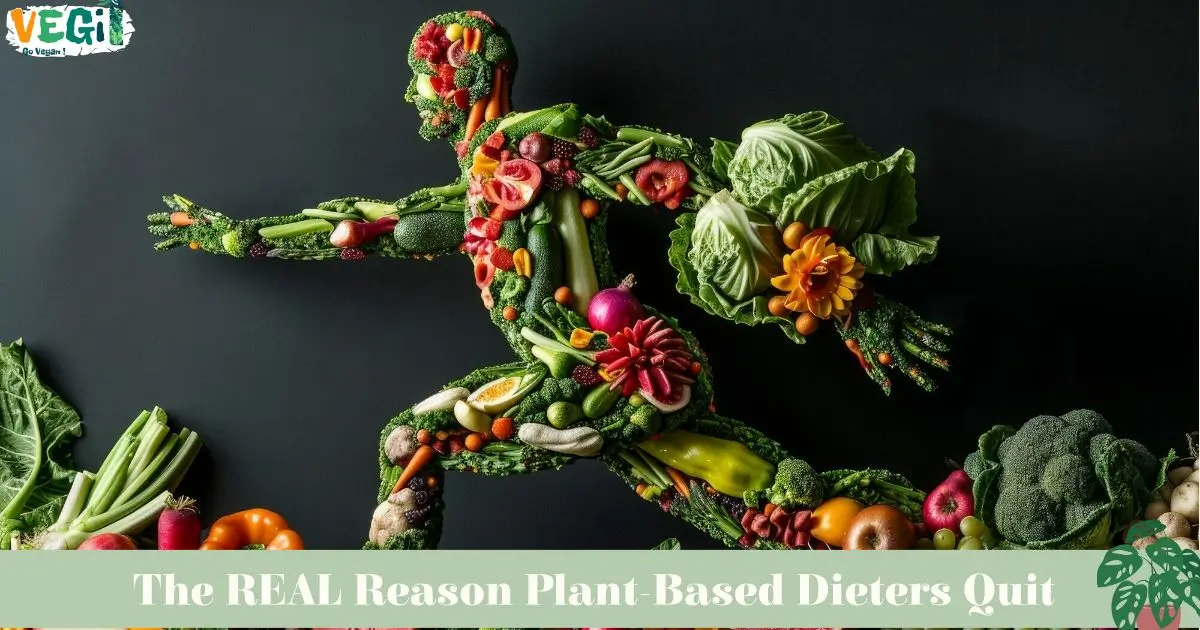
The Myth of the Unhealthy Vegan: Perpetuating the Cycle of Misinformation
The stereotype of the unhealthy vegan is a persistent myth that fuels misinformation. This narrative can deter many from maintaining a vegan lifestyle.
Common Misconceptions
Many people believe that a vegan diet inevitably leads to deficiencies. They think vegans are prone to iron, B12, or vitamin D deficiencies, low energy, and constant fatigue. This misconception is widespread, despite evidence showing that a well-planned vegan diet can be nutritionally adequate and healthy.
The Role of Blood Tests
When people feel unwell, they should investigate the cause. Blood tests can identify deficiencies, allowing individuals to address them while remaining vegan.
Unfortunately, many who quit veganism for “health reasons” often skip this crucial step. They don’t get blood tests or act on them to correct deficiencies. If a blood test reveals a deficiency, the logical step is to supplement or adjust the diet. For example, a vitamin D or B12 supplement can resolve deficiencies without abandoning veganism.
However, many ex-vegans don’t take these steps. Instead, they use their health concerns as a reason to quit veganism altogether.
Breaking the Cycle
This leads to a self-perpetuating cycle of misinformation. Ex-vegans share their stories of feeling unwell, reinforcing the myth that veganism is unhealthy.
To break this cycle, we must promote accurate information and encourage people to seek medical advice before making drastic dietary changes.
The Appeal and Danger of the “Ex-Vegan” Narrative
The “ex-vegan” narrative is compelling for many reasons. It appeals to both non-vegans and media outlets, further complicating the issue.
The idea of an ex-vegan is comforting to those who consume animal products. It justifies their dietary choices and alleviates any guilt they might feel.
They see ex-vegans as proof that a vegan diet is unsustainable, reinforcing their own eating habits.
The media loves stories that generate clicks and engagement. Articles about ex-vegans shedding light on the “dangers” of a plant-based diet are highly clickable.
These sensational stories play into algorithms, amplifying their reach and impact.
The Impact on Public Perception
This widespread coverage can shape public perception. It creates a narrative that veganism is inherently flawed, discouraging others from trying it.
As a result, the cycle of misinformation continues, making it harder for the vegan movement to gain traction.
Meeting Influencers
More recently, I met Alex from Cosmic Skeptic, who announced his departure from veganism a few months ago.
He shared a YouTube post with his 500,000+ subscribers, stating that he was reevaluating his ethical stance on eating animals. He mentioned consuming primarily sea animals.
Alex emphasized that all necessary nutrients can be found in a well-planned plant-based diet. There isn’t any magical nutrient exclusive to animal products.
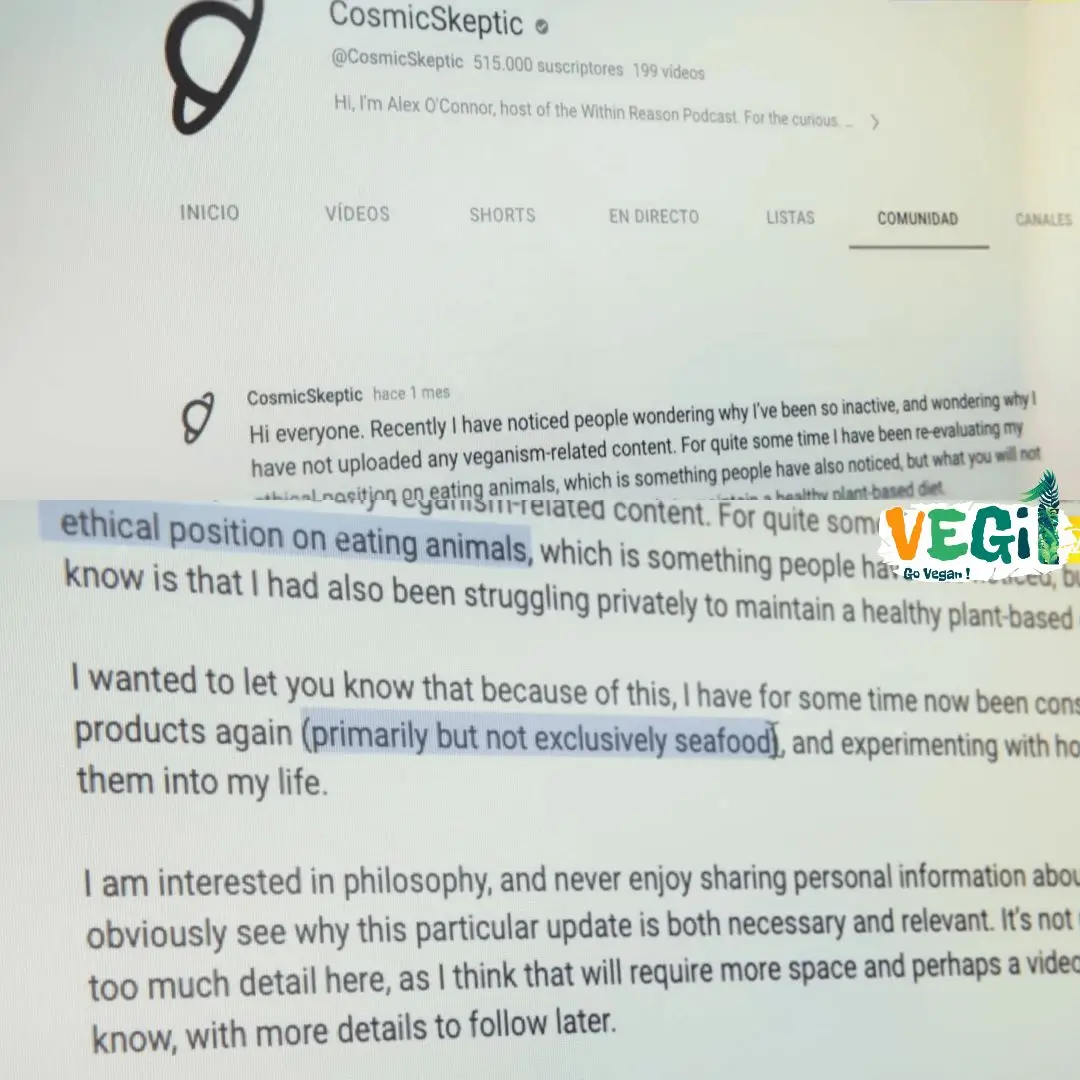
The Language Shift: Distancing from Animal Suffering
One intriguing aspect of ex-vegans is the language they use when they leave the lifestyle. Their terminology often shifts to create emotional distance from animal suffering.
When Alex announced his decision, he referred to animals as “seafood.” This subtle shift helps in distancing oneself from the sentience of these beings.
Another ex-vegan, Elise, previously known as Raw Alignment, also changed her language. Sentient cows became just “beef,” further detaching herself from the ethical implications.
Why This Matters?
This shift in language is significant. It reflects an attempt to lessen the cognitive dissonance that comes with reverting to animal-based diets.
These influencers have a broad reach. Their language and actions can influence many followers.
The Allure of Fish and Eggs: Perceived Ethical Loopholes
Many ex-vegans turn to fish and eggs when transitioning back to animal products. These choices often seem like a softer reintroduction into non-vegan eating.
Fish and eggs are frequently the first animal products reintroduced. They are often perceived as less harmful, making the transition easier.
Miley Cyrus publicly discussed her shift away from veganism. She claimed her brain function improved after reintroducing fish and omegas. While her story is unique, it highlights a common narrative. Many believe that certain animal products can quickly resolve health issues. Despite these claims, the quick turnaround in health is often a placebo effect. The body doesn’t instantly absorb nutrients from a single meal.
Physiological changes take time and Immediate effects are likely psychological
The Truth About ‘Ethical’ Eggs
Many people believe that eggs can be ethically sourced. However, the reality is often far from humane.
Terms like “organic” and “free-range” give a false sense of ethical consumption. Bonnie Rebecca emphasized these points, but the truth is more complex.
Most backyard hens come from the same hatcheries as factory-farmed chickens. Male chicks are often killed immediately.
Even small-scale farms contribute to this exploitation. Male chicks are either shredded or killed at a young age.
This practice is common in both large and small farms. It’s a harsh reality that many overlook.
Backyard farms are not exempt from these practices. Small farmers also cull male chicks, as demonstrated by a viral clip.
Even well-meaning farmers participate in this cycle of exploitation.
It’s crucial to recognize that eggs are always a product of exploitation. Whether from large factories or small farms, the ethical issues remain.
Moral Inconsistencies Among Ex-Vegans
One glaring issue with ex-vegans is their moral inconsistencies. These often become evident even before they revert to animal products.
Take Elise Parker, for instance. While still claiming to be an ethical vegan, she bought a dog from a breeder. We know every purchase from a breeder condemns a shelter dog to death.
This act clearly contradicts the principles of ethical veganism.
Bonnie Rebecca displayed similar contradictions. Almost immediately after going ex-vegan, she flaunted an expensive knee wool rug and a feather-filled couch.
If her shift away from veganism was for health reasons, why didn’t she continue to abstain from animal products in all aspects of her life?
John Phoenix provides another example. He made videos about the dangers of the vegan lifestyle, only to jump back onto the plant-based bandwagon a year later.
His Instagram post showing off a reindeer he had killed added to the confusion. He cited concerns around children on a plant-based diet as his reason for the shift.
Do you know vegan celebrities ?
Concerns About Children on Plant-Based Diets: Fact or Fiction?
One common argument against veganism involves concerns about children. Are these concerns valid?
Calorie and Nutrient Intake
There are worries about providing enough calories to promote growth in children. Whole food plant-based diets can be challenging because of the bulk and low-calorie density of the foods.
However, recent studies like the Vichy diet study out of Germany show that kids on plant-based diets can thrive. If they consume a similar amount of calories as their omnivorous counterparts, they receive comparable protein levels.
The evidence suggests that children can grow just fine on a plant-based diet. It’s very compatible with what we’re seeing in omnivorous diets.
Concerns about children on plant-based diets often stem from misinformation and lack of proper dietary planning.
The Extreme Diet Cycle: From Raw Vegan to Carnivore
Many ex-vegans often swing between extreme dietary approaches. They start with raw veganism and end up on the carnivore diet.
Yovada Mendoza is a prime example. She began with raw veganism, taking her diet to extremes. She centered her YouTube channel around raw, oil-free, soy-free, gluten-free, “cleansing” recipes for weight loss. She even promoted extreme water fasts. After three years, Yovada realized raw veganism wasn’t sustainable. She began incorporating cooked foods, like legumes, which are highly beneficial for health.
Recent studies show that consuming legumes can lower the risk of cardiovascular disease and all-cause mortality.
Elise Parker also started with raw veganism and experimented with various extreme diets. She tried high-carb, low-fat, high-fat, low-carb, and even water fasting.
Another example is Tim Shee, who tried numerous restrictive plant-based diets. He even delved into urine therapy, claiming it benefited him for years.
Rebecca and her partner initially followed the “Raw Till Four” diet, popularized by Freelee the Banana Girl. This approach involves eating raw foods until 4 PM and then having cooked meals.
The Carnivore Diet: A Dangerous Elimination Diet
Some ex-vegans take an even more extreme route by adopting the carnivore diet. This diet involves eating only animal flesh.
Elise Parker, an ex-vegan, switched to the carnivore diet, eating only meat for thirty days. She consumed bacon daily, a class one carcinogen.
She claimed that grass-fed beef impacts the body differently than factory-farmed beef. Despite claims about grass-fed and organic meats, red meat contains harmful components.
- Saturated fat
- Dietary cholesterol
- Heme iron
These components increase the risk of chronic diseases like cardiovascular diseases and colorectal cancer.
Switching from red meat to plant protein offers significant health benefits. Studies show that replacing even a small amount of animal protein with plant protein reduces the risk of cardiovascular disease and all-cause mortality.
- Increased fiber
- Decreased saturated fat
- Potential increase in polyunsaturated fat
These benefits are independent of the fatty acid and fiber content of the foods.
Gut Health and the Illusion of Short-Term Improvements
Some ex-vegans claim their gut health improves after switching to a carnivore diet. But is this really a sustainable solution?
People often report feeling better initially on a carnivore diet. This is likely due to its nature as an elimination diet. By cutting out various foods, they might inadvertently remove the culprit causing their gut issues.
However, this short-term relief doesn’t guarantee long-term health. Just because something feels good initially doesn’t mean it’s beneficial over decades. For example, smoking might give temporary pleasure but is disastrous for long-term health.
Elimination diets can indeed offer short-term symptom relief. But they don’t address the root cause of health issues. Removing most foods from your diet isn’t a sustainable or balanced approach.
It’s crucial to remember that feeling great in the short term doesn’t equate to a healthy lifestyle. The real test is whether a diet supports long-term well-being.
Seeking Professional Guidance: The Key to Sustainable Health
If you’re struggling with your health, it’s essential to seek professional advice. Relying on social media for health tips can lead you down the wrong path. When facing health issues, the first step should be consulting a doctor. A proper diagnosis is vital for understanding and addressing your condition. Once diagnosed, working with a nutrition professional like a dietitian can help tailor a diet plan that meets your specific needs.
Googling symptoms or turning to social media for health advice is risky. It can lead to misinformation and unnecessary dietary changes. Instead, professional guidance ensures you get accurate information and appropriate treatment. This approach is far more reliable than self-diagnosis.
Leading dietetic associations confirm that a well-planned vegan diet is nutritionally adequate for all life stages.
So, before making drastic changes, consult a professional.
The Vegan Activist’s Struggle: When Passion Becomes Suffocating
Identity and Veganism
When veganism becomes our sole identity, it can make it challenging to integrate with the world around us. The world isn’t changing fast enough to alleviate the feelings of frustration and anger that come with being deeply aware of animal suffering.
This intense involvement can sometimes cause a feeling of suffocation.
Finding Balance
Faced with this struggle, some individuals might feel trapped. They see two options: continue feeling overwhelmed or give up on veganism to find peace. This creates a false dichotomy.
It’s crucial to find a balance. Instead of abandoning veganism, we should aim to integrate it into our lives in a sustainable way. This means allowing ourselves to have an identity beyond veganism.
Maintaining Conviction
Most of us strive to find that balance, but some struggle. They might adopt a black-and-white mindset, going all-in quickly, which leads to anxiety and stress. Eventually, they might see giving up as the only way out.
It’s not ethically right, but understanding this mindset can help us support those who are struggling. Encouraging a more balanced approach can prevent burnout and maintain long-term commitment.
Beyond Veganism
Having interests and passions beyond veganism is essential. We are complex beings with diverse interests. Exploring these aspects of ourselves can prevent us from feeling trapped within a single ideology.
By fostering a multifaceted identity, we can sustain our vegan lifestyle without feeling overwhelmed. This approach helps us exist in a world that doesn’t yet fully align with our values.
Why People are Quitting Veganism
Understanding why people quit veganism is crucial. The appeal of the ex-vegan narrative and the myth of the unhealthy vegan are significant factors. Many ex-vegans share their journeys online. These narratives reveal the struggles and triumphs that shape their decisions. By examining these stories, we can identify common themes and challenges. Factors such as social pressure, misinformation, and personal health concerns often influence decisions.
Engaging in open dialogue with ex-vegans provides valuable insights. These conversations can reveal the nuanced reasons behind their choices.
By recognizing these challenges, we can offer better support and resources to those struggling. Promoting a balanced and informed approach to veganism can help sustain long-term commitment.
Why do some people stop being vegan?
Many factors contribute to this decision. Some individuals face health issues, while others struggle with the restrictive nature of the diet. Additionally, misinformation and lack of proper guidance can play significant roles.
Are fish and eggs ethical alternatives?
While some ex-vegans turn to fish and eggs, these choices are not without ethical concerns. Terms like “organic” and “free-range” can be misleading, as all forms of animal farming involve some level of exploitation.
Is it possible to get all necessary nutrients from a vegan diet?
Yes, a well-planned vegan diet can provide all essential nutrients.
How can I ensure my vegan diet is nutritionally adequate?
Consulting a registered dietitian can help tailor a vegan diet to your specific needs. They can guide you in making balanced food choices to meet all your nutritional requirements.
Do children thrive on a plant-based diet?
Recent studies show that children can thrive on a well-planned plant-based diet. It’s essential to ensure they consume enough calories and a variety of foods to meet their nutritional needs.
What should I do if I experience health issues on a vegan diet?
Seek professional guidance from a healthcare provider and a registered dietitian. They can help diagnose any underlying issues and adjust your diet to better suit your health needs.


